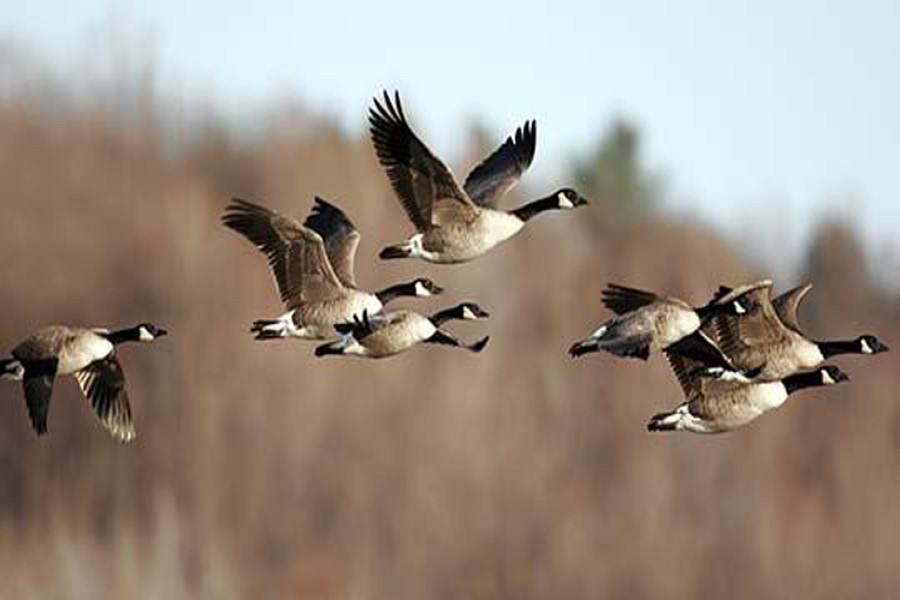Why do birds migrate to warmer countries in the winter? The common answer would be to protect themselves from severe cold. Until now that was the standard knowledge man had had of the feathery friends' migratory behavior. Now is the time to get a different idea scientists have come to know of, of late. Birds do migrate for energy conservation. Contrary to the usual understanding of the matter, this does not seem to be logical unless explained.
It is assumed that birds expend enormous amount of energy on their arduous journeys over rough terrains, hills and mountains braving hostile weather to destinations thousands of miles away -and that too during arrival to a place and return back. But scientists have found that they gain more energy when migrated than they expend during such sojourns. The food available in the host country more than compensate for their exercise.
Why don't they stay then in the land of their migration and return back to their cold countries to nest and breed? It's because in the warmer regions where they spend the winter the competition for food gets stiff and they do not like to compete with the residential species for food during the rest of the year. Instead, food is available in their homeland by the time they return there.
Birds and other animals are not considered intelligent enough to be on a par with man. But in certain areas they are gifted with qualities man cannot imagine to possess even in their dreams. Dogs have the uncanny intelligence of finding hidden or trapped people or objects even the sophisticated sensors cannot detect. Vultures can sense and notice carcasses from miles away. There are similar other extraordinary powers the animal world is gifted with.
Yet not many have the idea that plants and trees have their own means of communication. In Africa there is a species of thorny tree, the leaves of which are favourite with giraffe. When a group of these animals invade one such tree, it sends message to its neighbours by means of air. If the air blows to the opposite direction, the communication fails. But if the air or wind blows to the direction of other trees, they get the message and make the thorns ready for the invasion.
In the same or even more complicated way, trees maintain their communication using the soil structures that nourish them. This explains why trees do not spread their branches too much towards their next neighbor of the same species. In case of hostile neighbours this may not be applied. Rationality, it appears, is not unique to human species only. Fellow feeling, now becoming increasingly a rare commodity among humans, is at work among a few species of animals and plants which were thought to be devoid of responding to any emotional intervention.
There are religious sects like the Jains who cover their noses with a piece of cloth lest minute insects fly into their nostrils and die in the process. This is taking non-violence to the extreme point. Some may call it craziness but a dispassionate analysis of life in its myriad forms could not help bring people to a better realisation. Whether maintaining this is possible or not is, however, a different matter.
Even there are others, albeit their number is minuscule, who consider that there is no such thing as inanimate object. Even the planet we inhabit has its life and spirit. It is an absolute whole that is beyond deduction and addition. Sounds crazier still but who knows where matters ends and life begins! The first man was created out of clay, many believe. Spiritualists also believe that human body nothing but elements of earth. Man will discover many frontiers of knowledge and still more will remain unresolved.


